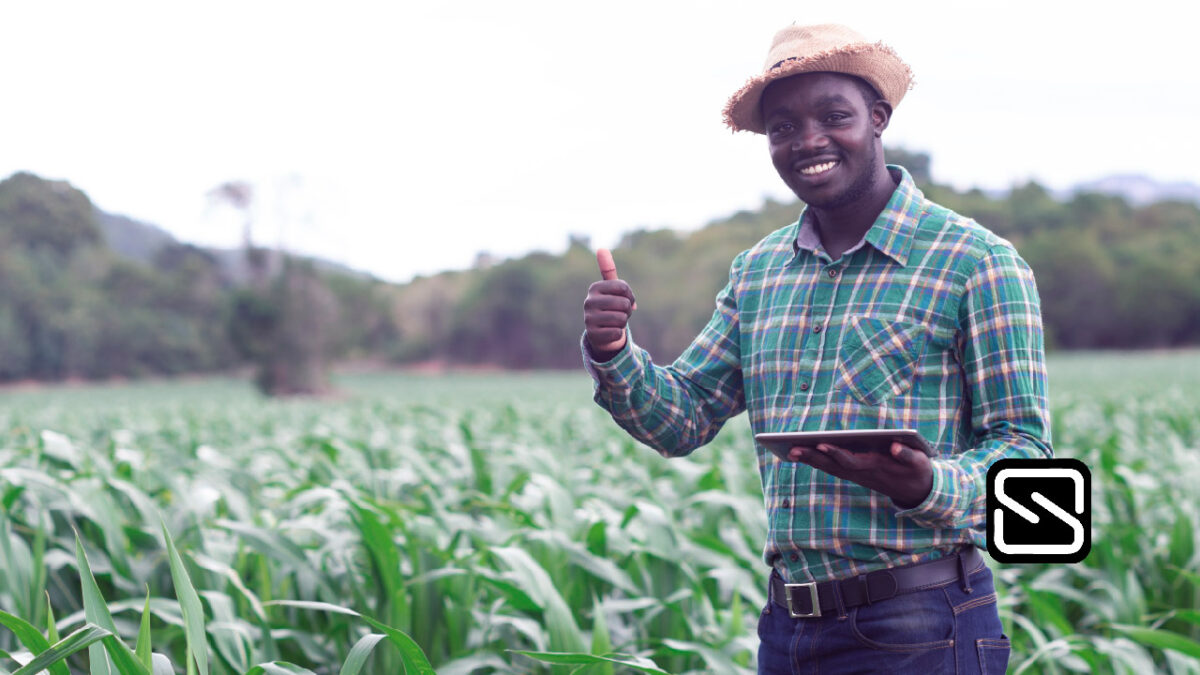Etherisc, the global, decentralized insurance platform for collectively building insurance products, has announced its support for farmers to combat catastrophic weather events in Kenya. Michiel Berende, Chief Inclusive Officer at Etherisc, revealed that more than 22,000 farmers are to get access to an insurance plan without the many steps associated with conventional insurance.
With the rise of decentralized finance (DeFi), the concept of decentralized insurance became a theoretical possibility. This concept is now being brought to life by Etherisc, which is assisting African farmers in insuring their crops against poor weather.
The journey from traditional insurance to decentralized insurance
Since the early 2000s, Berende has worked in the insurance industry. Berende’s first assignment in 2005 was to assist an Indian microfinance organization in establishing operations in the nation. His extensive experience in finance and technology came in helpful as he was in charge of setting up the organization’s financial operations and deploying the software to execute those operations. Despite the fact that Berende’s work was comparable to what he had done in the Netherlands, putting financial operations in place in a developing market was tough due to limited resources and the extra inventiveness required to provide financial services in rural areas.
“It changed my view on how things are going in the world, and it doesn’t work everywhere in the world the same way it works in the Netherlands. I enjoyed it, and it moved me to go and live in India,” Berende said.
In 2007, he became a consultant, specializing in microinsurance technology, after spending a year in India. As a result, he was able to engage in initiatives in other growing economies, including Africa. However, Berende quickly discovered that parametric insurance was not available in Africa; oddly, little has changed in 2022, 15 years later.
Africa has 16.72 percent of the world’s population, although it accounts for less than 1% of global insured losses. Insurance penetration in Africa is at 2.78 percent in 2022, down from 2.98 percent the previous year, according to the Africa Insurance Pulse 2022.
“The continent still lacks flexible, inexpensive, and personalized policies that would unleash insurance for the African consumer,” said Eunice Kinungi, a Kenyan insurance professional and CEO of Griffin Insurance.
Aside from the issue of insurance’s unaffordability and inflexibility, Africans see insurance through the prism of superstition. The reason for poor insurance penetration, according to Bode Pedro, CEO of Casava, a Nigerian insurtech firm, is that individuals prefer to invest in positive rather than negative outcomes.
Kinungi also added that “insurance, unfortunately, does not have the best reputation, and there is a general distrust of insurance companies perpetuated by poor customer service and unpaid claims.”
Berende agrees with Kinungi and Pedro’s take on why insurance in Africa is not yet a thing, reiterating the need to create products that fit the African market.
How Etherisc is creating cheaper decentralized insurance with blockchain
Berende dedicated himself to finding technology that would make insurance inexpensive and appealing to Africans, based on statistics demonstrating that legacy insurance systems cannot boost insurance penetration.
In 2013, he discovered Bitcoin while on his hunt, bringing him one step closer to his objective.
“What I find interesting about Bitcoin is that it makes it easy to transfer small amounts of money from A to B without a middleman at a low cost. I delved a little more into it and discovered the technology behind it — blockchain.”
Berende’s blockchain discovery sparked a new desire to develop blockchain-based solutions, the majority of which concentrate on the technology’s most well-known application: cryptocurrency. Surprisingly, blockchain, which secures crypto transactions by recording them simultaneously on a network of computers, hasn’t seen many applications outside of crypto.
However, in 2016, Etherisc began to incorporate blockchain solutions other than crypto, and it wasn’t long until Berende discovered the team behind it.
Berende was an obvious choice for Etherisc, combining his insurance background with his aim to build inclusive finance using current technology.
Etherisc created a decentralized open-source insurance platform on the Ethereum blockchain, called the Generic Insurance Framework. This framework allows for the easy digitization of parametric insurance products.
Etherisc has partnered with Agriculture and Climate Risk Enterprise (ACRE) Africa, a certified insurance intermediary that helps farmers decrease agricultural and climate risks, to offer smallholder farmers micro-insurance at a reasonable price. A blockchain solution to insurance for farmers has to be simple to get any traction; a challenge Etherisc had a simple solution to.
Etherisc’s offering for farmers is weather index insurance, which protects them in the event that bad weather stops them from having a productive crop.
Berende’s solution is simple. The bags of seeds that farmers buy come with scratch cards. When they send the numbers on these cards via Unstructured Supplementary Service Data (USSD), Etherisc’s Generic Insurance Framework captures their geolocation and receives information about the area’s climatic conditions with satellite data.
Farmers pay the $0.5 premium when they purchase their seed bags from ACRE at a discounted price that includes the insurance cost. Mobile banking can also be used to pay for insurance.
“There’s no need to send an insurance surveyor into the field to monitor if something has happened. A process that would naturally cost a lot of money,” Berende said.
Etherisc has harnessed the trustless nature of this technology to create an insurance system that can work without many people. The zero-delivery cost also means it is cheaper to run especially for a developing nation like Kenya.
